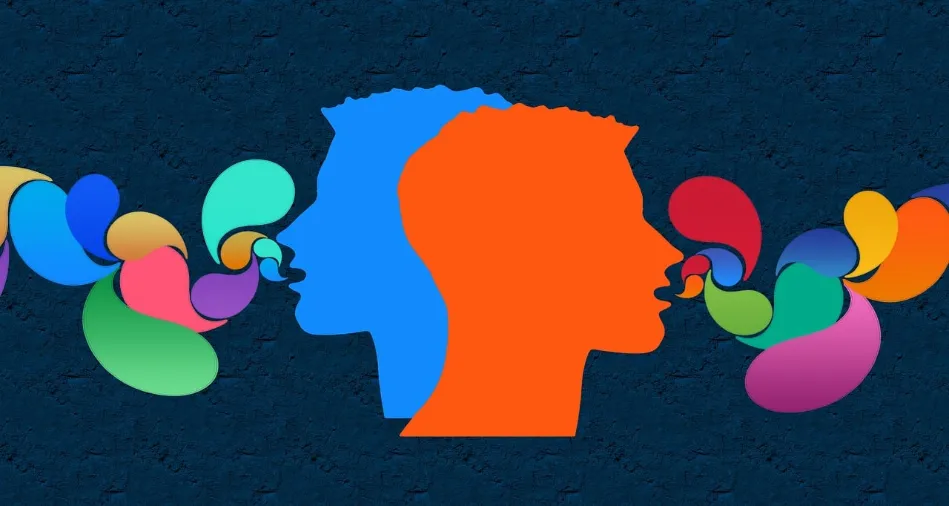
Personality change, is it possible? We can often wonder if we’re stuck with the personality we’re born with or if there’s room for change and development. Recent psychological research provides an intriguing answer: yes, you can indeed change your personality. We delve into the science behind personality change, exploring how our traits evolve over time and the methods we can use to actively shape our character.
As we embark on this journey of self-discovery, we’ll examine the foundations of personality, debunk common myths, and uncover practical strategies for personal development. Whether you’re seeking to enhance your career prospects, improve relationships, or simply become a better version of yourself, understanding the flexibility of personality traits can be a game-changer.
Personality: More Than Just a Label
When we think about personality, we often conjure images of quirky character traits or results from online quizzes. However, the scientific understanding of personality goes much deeper than these surface-level assessments.
Defining Personality in Psychological Terms
In the realm of psychology, personality encompasses an individual’s characteristic patterns of thoughts, emotions, and behaviors. It’s the lens through which we view the world and the framework that guides our interactions with others.
Personality Color Traits – Color Psychology
Blue: Symbolizes calmness, stability, and introspection.
Green: Associated with growth, harmony, and being supportive.
Red: Represents energy, assertiveness, and courage.
Yellow: Reflects positivity, openness, and extraversion.
These colors not only suggest how a person may present themselves but also hint at their underlying way of interacting with the world.
Misconceptions About Personality
Many people believe that personality is fixed and unchangeable. This misconception often stems from popular but scientifically unsupported personality tests that categorize individuals into rigid types. In reality, personality is far more fluid and dynamic than these tests suggest.
The Science of Personality Change
Recent studies have shed light on the fascinating process of personality development throughout the lifespan. Contrary to earlier beliefs, research now shows that our traits are not set in stone but can shift significantly over time.
The Role of Intentional Change
While some personality changes occur naturally with age, research also supports the idea that individuals can actively work to modify their traits. This concept of intentional personality change opens up exciting possibilities for personal growth and development.
Measuring Personality Change
Psychologists use various tools and techniques to assess personality changes over time. These may include self-report questionnaires, behavioral observations, and even brain imaging studies to track shifts in neural activity associated with different traits.
Debunking the Myth of Static Personality
The notion that personality is fixed and unchangeable has been deeply ingrained in popular culture. However, modern psychological research challenges this assumption, revealing a more nuanced and dynamic view of human nature.
The Origins of the Fixed Personality Myth
The idea of a static personality can be traced back to early psychological theories and the limitations of early research methods. However, as our understanding of human development has evolved, so too has our perspective on personality change.
Evidence Against the Static Personality Theory
Numerous studies have demonstrated that personality traits can and do change throughout life. These changes can be observed across different age groups, cultures, and life circumstances.
The Impact of Life Events on Personality
Major life events such as starting a new job, getting married, or experiencing a significant loss can catalyze personality changes. These experiences often challenge our existing patterns of thinking and behaving, prompting adaptations in our traits.
Intentional Personality Change: Strategies for Personal Growth
While some personality changes occur naturally, research suggests that individuals can also actively work to modify their traits. This process of intentional personality change offers exciting possibilities for personal development and self-improvement.
Setting Clear Goals for Change
The first step in intentional personality change is identifying specific traits you wish to modify and setting clear, achievable goals. This might involve increasing conscientiousness to improve work performance or boosting extraversion to enhance social relationships.
Cognitive-Behavioral Techniques
Cognitive-behavioral strategies can be powerful tools for changing thought patterns and behaviors associated with specific personality traits. These techniques involve identifying and challenging unhelpful thoughts and practicing new behaviors.
Mindfulness and Self-Awareness
Developing mindfulness and self-awareness can help individuals recognize their habitual patterns of thinking and behaving. This awareness is crucial for identifying areas for change and monitoring progress over time.
Habit Formation and Consistency
Lasting personality change often requires forming new habits and consistently practicing desired behaviors. This process takes time and effort but can lead to significant shifts in trait expression over the long term.
The Role of Environment in Shaping Personality
Our surroundings play a crucial role in influencing our personality traits. By understanding and manipulating environmental factors, we can create conditions that support desired personality changes.
Social Influences on Personality
The people we interact with regularly can have a profound impact on our personality development. Surrounding ourselves with individuals who embody traits we aspire to can facilitate positive change.
Cultural Factors and Personality
Cultural norms and values can shape personality expression. Moving to a new culture or actively engaging with different cultural perspectives can prompt shifts in personality traits.
Work Environment and Personality Development
Our professional settings can significantly influence personality traits. Taking on new roles or responsibilities at work can catalyze changes in traits like conscientiousness or assertiveness.
Barriers to Personality Change
While personality change is possible, it’s not always easy. Understanding and addressing common obstacles can increase the likelihood of successful trait modification.
Identifying and Challenging Limiting Beliefs
Many people hold deep-seated beliefs about the immutability of personality. Recognizing and challenging these beliefs is crucial for embracing the possibility of change.
Dealing with Setbacks and Resistance
Change is often met with internal resistance, and setbacks are common. Developing resilience and a growth mindset can help individuals persist in their efforts to modify personality traits.
Managing Expectations and Patience
Significant personality changes typically occur gradually over time. Setting realistic expectations and practicing patience are essential for long-term success.
The Impact of Personality Change on Life Outcomes
Understanding how personality changes can affect various aspects of life can provide motivation and direction for personal growth efforts.
Career Success and Personality Traits
Certain personality traits, such as conscientiousness and emotional stability, are associated with greater career success. Developing these traits can potentially enhance professional outcomes.
Relationships and Personality Development
Changes in traits like agreeableness and extraversion can significantly impact the quality of personal relationships. Working on these areas can lead to more fulfilling social connections.
Overall Life Satisfaction
As individuals develop more adaptive personality traits, they often experience increased life satisfaction and a greater sense of fulfillment.
Authenticity and Personal Identity
Some argue that actively changing one’s personality may compromise authenticity. However, others view intentional change as a form of self-actualization and growth.
The Pressure to Conform
Societal pressures to exhibit certain personality traits can be problematic. It’s crucial to ensure that efforts to change personality are driven by personal values and goals rather than external expectations.
The Takeaway
The science of personality change offers a hopeful message: we are not bound by fixed traits but have the capacity for growth and transformation throughout our lives. By understanding the mechanisms of personality development and employing evidence-based strategies, individuals can actively shape their character traits to align with their goals and values. This journey of personal growth, while challenging, holds the potential for profound positive impacts on various aspects of life, from career success to relationship satisfaction and overall well-being.
As we continue to unravel the complexities of human personality, the possibilities for intentional self-improvement become ever more exciting. Whether you’re seeking to boost your conscientiousness, enhance your emotional stability, or cultivate greater openness to experience, the research is clear: with dedication and the right approaches, meaningful personality change is within reach.











